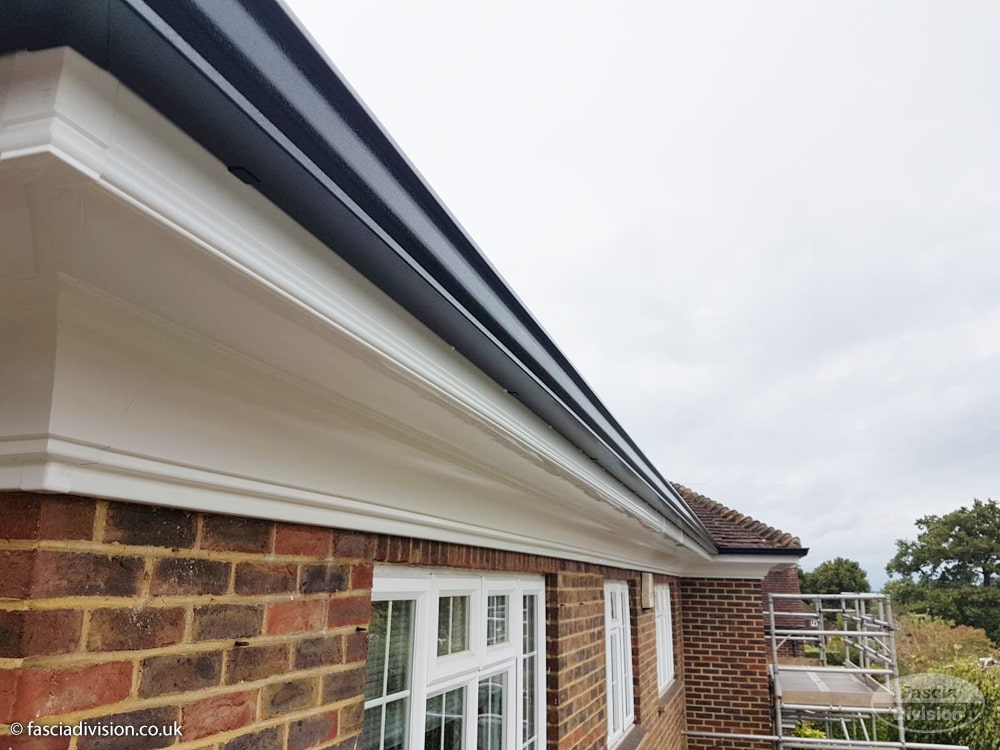soffits7496
soffits7496
17 Reasons Not To Not Ignore Fascia And Soffit Maintenance
Fascia and Soffit Maintenance: A Comprehensive Guide
When it concerns preserving a house, the importance of outside elements like fascia and soffit can not be overstated. These parts not just contribute to the visual appeal of a property but also serve essential functions in regards to ventilation, wetness control, and structural integrity. This post delves into fascia and soffit maintenance, covering their definitions, functions, typical issues, and efficient maintenance practices to ensure their longevity and performance.

Understanding Fascia and Soffit
Fascia is the vertical board that runs along the edge of the roofing system, typically where the roof eaves extend. It holds the gutter system in location and is often painted to match or highlight the exterior of the home.

Soffit, on the other hand, is the horizontal board that connects the fascia to the home’s exterior wall. Soffits are generally vented to allow air flow into the attic space, promoting ventilation and preventing heat and wetness buildup.
Functions of Fascia and Soffit
The main functions of fascia and soffit include:
- Protection: They shield the attic and roofing structure from the elements, including rain, snow, and pests.
- Ventilation: The vented soffit permits proper air flow, which helps to prevent mold and condensation in the attic.
- Aesthetic Appeal: Both fascia and soffit add to the general curb appeal of a home, improving its visual interest.
Typical Issues with Fascia and Soffit
Like any part of a home, fascia and soffit can deal with a series of problems that might compromise their effectiveness. Typical concerns include:
- Rotting: Moisture and humidity can cause wood rot in both fascia and soffit, compromising their structural integrity.
- Insect Infestation: Insects, like bees, wasps, and termites, might nest in these areas if left uncontrolled.
- Peeling Paint: As weather condition and time take their toll, paint can begin to peel, interfering with the home’s appearance and permitting additional moisture infiltration.
- Gutter Issues: Poorly set up or preserved gutters can overflow, causing water damage and soil disintegration around fascia and soffit.
- Vent Blockages: Dust, particles, and nesting products can hinder airflow from soffit vents, causing incorrect ventilation in the attic.
Maintenance Tips for Fascia and Soffit
Routine maintenance is important for guaranteeing fascia and soffit stay functional and attractive. Here are some vital maintenance steps:
1. Routine Inspections
Conduct regular inspections, specifically after extreme weather, to look for indications of damage or wear. Try to find:
- Cracks or divides in the fascia
- Signs of rot or mold
- Loose or sagging areas
- Insect activity
2. Clean Gutters and Downspouts
Clogged gutters can lead to water pooling, which increases the threat of decaying fascia and soffit. Make sure rain gutters and downspouts are complimentary of debris and working efficiently:
- Remove leaves, branches, and dirt
- Flush with water to check drain
- Clear any blockages
3. Painting and Finishing
If fascia and soffit are wood, painting or staining them can improve their resistance to wetness and pests:
- Choose resilient, weather-resistant paint or stain
- Repaint every couple of years as required
- Repair any peeling before repainting to ensure adhesion
4. Make Sure Proper Ventilation
To prevent moisture buildup in the attic, make sure that soffit vents stay clear:
- Remove any clogs caused by debris or bugs
- Clear exterior soffit holes to enable proper air flow
5. Change Damaged Materials
If any fascia or soffit boards reveal significant damage or rot, change them instantly to avoid additional problems:
- Use rot-resistant products like PVC or aluminum
- Speak with a professional for comprehensive damage
6. Professional Inspection and Repairs
For any significant issues, such as pest infestations or serious structural problems, get a professional for a thorough inspection and repairs:
- Schedule an annual professional examination
- Address issues immediately to prevent pricey repairs later on
Table: Maintenance Checklist for Fascia and Soffit
| Maintenance Task | Frequency | Notes |
|---|---|---|
| Visual Inspection | Monthly | Look for damage, rot, and insect activity |
| Clean Gutters | Bi-annually | Guarantee efficient water drainage |
| Paint/Stain | Every 3-5 years | Usage weather-resistant products |
| Clear Soffit Vents | Annually | Avoid airflow blockages |
| Change Damaged Sections | As required | Usage rot-resistant materials |
| Professional Inspection | Each year | Seek advice from an expert for significant concerns |
FAQs About Fascia and Soffit Maintenance
Q: How often should I examine my fascia and soffit?A: It is recommended
to check these features monthly, especially after extreme climate condition. Q: Can I paint fascia and soffit myself?A: Yes, many property owners select to do this themselves. Nevertheless, ensure you follow appropriate precaution and select weather-resistant paint for lasting outcomes. Q: What must I do if I find rot on my fascia?A: If the damage is minimal, you might be able to
repair it with wood filler or epoxy. For extensive damage, replacing the affected area is a good idea. Q: How does poor ventilation affect my attic?A: Poor ventilation can result in moisture buildup, which can cause mold growth, structural damage,and increased energy costs due to ineffective heating and cooling. Q: Are there any products that are much better matched for fascia and soffit?A: Yes, vinyl, RepairMyWindowsAndDoors aluminum, and dealt with wood are popular choices due to their durability and resistance to
rot and insects. Preserving fascia and soffit is vital for maintaining the integrity, security, and visual appeal of a home. Regular evaluations, cleansing, painting, guaranteeing proper ventilation,
and professional interventions when essential can substantially extend the life of these key parts. House owners should remain proactive in their maintenance efforts to prevent costly repairs and ensure their homes remain safeguarded from the components.



